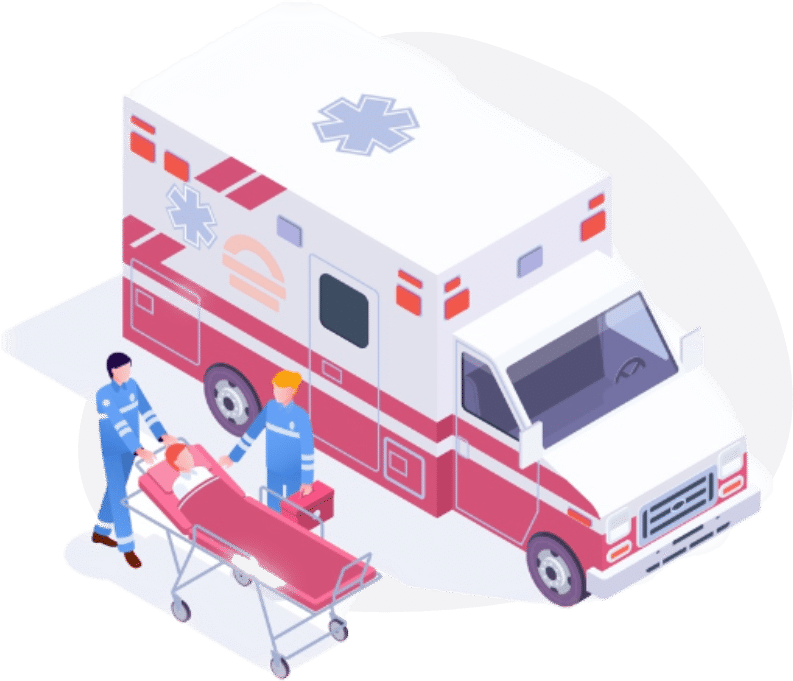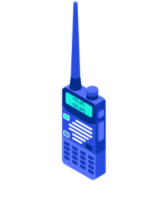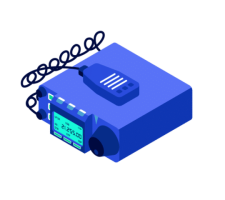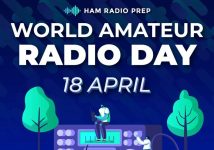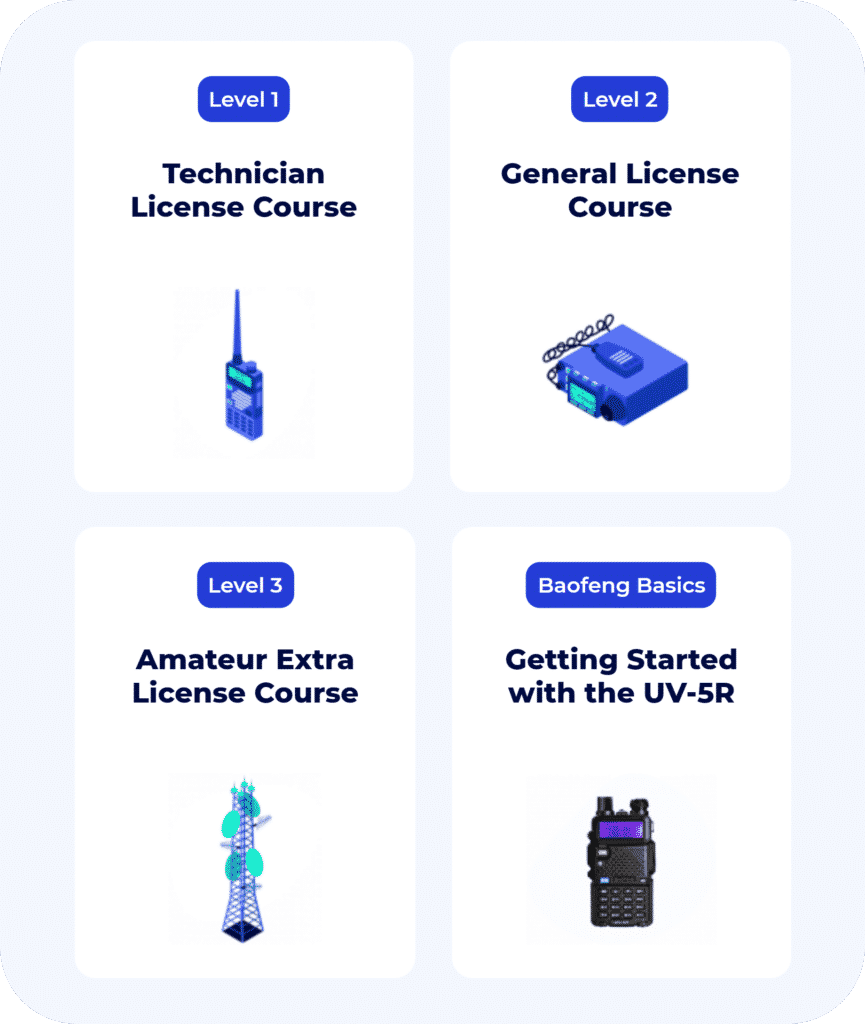One of the reasons that amateur radio exists at all is to provide emergency communications. Part §97.1, the very first section of the rules and regulations that govern amateur radio states that one of the bases of amateur radio is, “Recognition and enhancement of the value of the amateur service to the public as a voluntary noncommercial communication service, particularly with respect to providing emergency communications.”
Amateur radio operators take this responsibility very seriously. Each year, many amateur radio operators step up to assist a number of “served agencies” with public service and emergency communications. This includes local events, such as helping out your town’s CERT team search for a missing person; statewide events, such as providing communications during a wildfire; and international events, such as helping international aid groups coordinate their efforts after a hurricane or tsunami.
A Technician Class license and a willingness to serve is all that’s required to get started in public service and emergency communications. Once you obtain your amateur radio license, the next step is to join a CERT team or a local amateur radio emergency communications organization, such as a local amateur radio club, the local chapter of the Amateur Radio Emergency Service (ARES), or the Radio Amateur Civil Emergency Service (RACES). They will be able to advise you on what equipment to purchase and what training is required and available to become a valuable emergency communicator.
In this guide:
Why is amateur radio useful in an emergency situation?
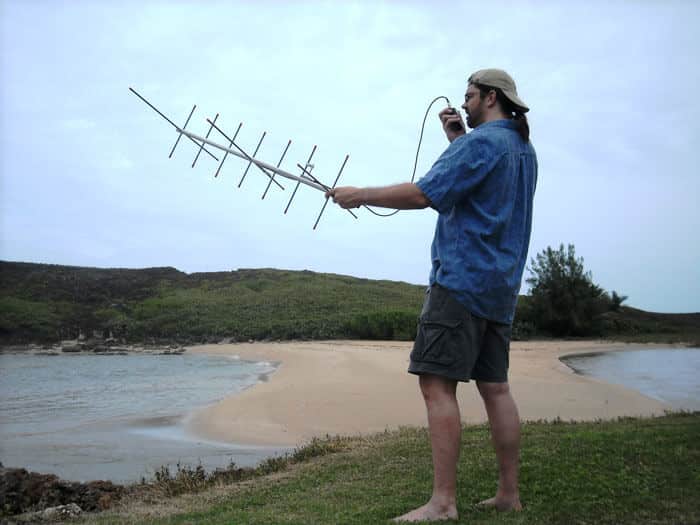
Many people ask, “Why use amateur radio, for emergency communications, especially now that we have cellphones.” Well, one of the first things that happens in an emergency is that cell phone towers go down, leaving large areas without communications. On top of that, there are still many rural areas without cell phone coverage at all.
Many states have invested in 800 MHz trunking systems to provide communications for emergency responders. These systems are great, but not without drawbacks. In some emergencies, for example, these trunking systems can be overloaded, making it difficult for some responders to get through.
Amateur radio fills in the gaps in these systems. Amateur radio operators have the equipment and expertise to form ad-hoc networks that can provide communications where it’s needed. This can mean providing traditional voice communications, but more and more, amateurs are being called up to provide digital communications, including sending email and computer files over amateur radio links.
Amateur radio’s response to Hurricane Maria
To show how amateur radio can be used in emergencies, let’s take a look at how amateur radio operators responded to Hurricane Maria in September 2017. Put simply, Hurricane Maria was devastating. According to Oscar Resto, KP4RF, who was the ARRL Puerto Rico Section Manager at the time, the island lost all power and 98% of their communications.
Here on the mainland, the ARRL, the Red Cross, and amateur radio suppliers mobilized to put together teams of amateur radio operators and the equipment they needed to assist the Red Cross in their relief efforts. Their mission was to provide health-and-welfare information to the Red Cross in the U.S., where the data was entered into the Red Cross Safe and Well system and available to family members. The teams were equipped with an HF transceiver, software, a dipole antenna, a power supply and all connecting cables, all fitted into a rugged, waterproof container.
The teams were sent all over the island, providing not only residents’ health-and-welfare information, but also information on the status of crucial infrastructure, such as power plants and emergency shelters. They used traditional voice modes for much of this work, but also used Winlink, a worldwide system that uses amateur radio frequencies, to send digital messages and computer files.
Which amateur radio frequencies are used in emergencies?
Any and all amateur radio frequencies may be used in an emergency. In Puerto Rico, amateur radio operators used HF frequencies to send and receive voice and digital messages. These frequencies were used because of the distances involved. Communication between Puerto Rico and the mainland is generally not possible on other amateur radio frequencies.
Other frequencies can be useful in other situations, however. VHF and UHF frequencies are generally used when the emergency or public service communications is to take place over a smaller area. For example, SkyWarn nets, which provide information on severe weather conditions to local emergency management agencies and the National Weather Service, are generally organized on a county-wide basis. That being the case, these nets generally use VHF or UHF repeaters.
For some types of emergency communications, amateurs use frequencies in the GHz range. One example of this are the digital networks that use Amateur Radio Emergency Data Network (AREDN) hardware and software. These networks may operate in the 2.4 GHz, 3.4 GHz, and 5.8 GHz bands. The reason for this is that these frequencies allow higher bandwidths than the lower frequency bands, and that means that data communications are faster.
Which amateur radio license do I need for public service and emergency communications?
To get started, all you really need is a Technician Class license because most public service and emergency communications takes place on the VHF and UHF bands. Once you’ve gotten started as an emergency communicator, you’ll want to upgrade to at least General Class. The reason for this is, as we’ve seen above, for some emergency situations, HF communications is necessary, and Technicians just don’t have enough HF privileges for these operations.
I would recommend that your ultimate goal would be to obtain an Amateur Extra Class license. The extra frequency privileges may come in handy in some emergency situations, but the real benefit is the knowledge of electronics, antennas, and radio wave characteristics that you’ll gain by studying for the Extra Class exam. This knowledge will make you a more effective communicator.
Note that in addition to obtaining your amateur radio license, emergency communications groups, such as ARES and RACES, require specific training in emergency communications operations. The basic courses aren’t that difficult and may even be taken online.
Amateur Radio Emergency Organizations
There are many amateur radio groups that provide public service and emergency communications, each with a slightly different focus. You can join one or more, receive training, and be available for emergencies and other public service events.
Amateur Radio Emergency Service (ARES)

ARES is an emergency-communications organization operated by the ARRL and consists of licensed amateurs who have voluntarily registered their qualifications and equipment, with their local ARES leadership, for communications duty in the public service when disaster strikes. Typically, ARES operates on the county and state level, but can also play a role in national or international emergencies. ARES members are noted for having responded to the 9/11 attacks, Hurricane Katrina. and Hurricane Michael.
For more information, go to https://www.arrl.org/ares.
Radio Amateur Civil Emergency Service (RACES)
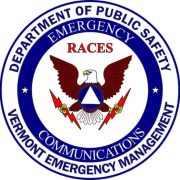
RACES (pronounced RAY-seez) is an emergency-communications service that operates under the auspices of the Federal Emergency Management Agency (FEMA). Many government agencies across the country train their Auxiliary Communications Service (ACS) volunteers using the RACES protocol. RACES volunteers serve their respective jurisdictions pursuant to guidelines and mandates established by local emergency management officials.
RACES volunteers are:
- Licensed radio amateurs.
- Certified by a civil defense agency.
- Able to communicate on Amateur Radio frequencies during drills, exercises and emergencies.
- Activated by local, county and state jurisdictions and are the only Amateur Radio operators authorized to transmit during declared emergencies when the President of the United States specifically invokes the War Powers Act.
For more information, go to http://www.usraces.org/.
SKYWARN

SKYWARN is a volunteer program with between 350,000 and 400,000 trained severe weather spotters. These volunteers help keep their local communities safe by providing timely and accurate reports of severe weather to the National Weather Service. In some areas, Skywarn uses amateur radio networks and repeaters to relay essential weather observations directly to local emergency management personnel and to NWS meteorologists.
For more information, go to https://www.weather.gov/skywarn/.
Community Emergency Response Teams (CERT)
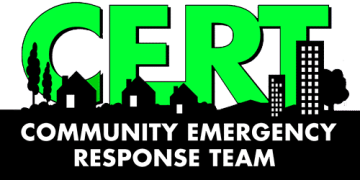
CERT members are a part of their local emergency management teams. CERT volunteers are trained to respond to emergency situations and also can support their communities during non-emergency events. CERT members are able to take advantage of training through the Federal Emergency Management Agency. While there are more than 2,700 CERT programs in the United States and more than 600,000 CERT members across the nation, not all CERT groups utilize radio communications for operations. Those that do may simply use Family Radio Service handheld radios, while others, such as the teams assisting the Los Angeles Fire Department, have organized amateur radio operators and networks to assist operations. Check your local CERT team for more information.
For more information, go to https://www.ready.gov/cert.
American Red Cross (ARC)
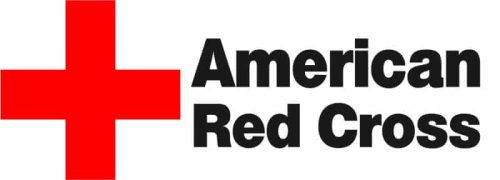
Amateur radio has long supported the American Red Cross. The ARRL and the ARC have long had a memorandum of understanding (MOU) that spells out how the two organizations work together. Many local ARC chapters have teams of amateurs ready to assist them in disaster and emergency response, and some chapters may even have amateur radio stations maintained by local clubs. The Red Cross has its own nationally licensed VHF public safety frequency, but using amateur radio gives them a lot more flexibility and range. As noted above, In 2017, amateurs from the mainland United States were deployed to Puerto Rico to help set up communications networks after the island sustained heavy damage from Hurricane Maria.
For more information on how you can become a Red Cross volunteer, to go https://www.redcross.org/volunteer/become-a-volunteer.html.
The Salvation Army Team Emergency Radio Network (SATERN)

SATERN is an all-volunteer organization consisting of licensed amateur radio operators who are skilled in emergency communications and message handling. They volunteer their time and talents to support Salvation Army operations in local, regional and international disaster situations. SATERN has local organizations in all 50 states and Canada, as well as many other parts of the world.
For more information about SATERN, go to http://eds-satern.sawmni.org.
Auxiliary Communications (AUXCOMM)

AUXCOMM is a relatively new initiative by state emergency management entities whose goal is to train as many amateur radio operators as possible to work and train with public safety personnel. Members are highly trained in emergency management operations such as the National Incident Management System (NIMS) Incident Command System (ICS). A few states have implemented this program.
For more information about AUXCOMM, go to https://www.cisa.gov/safecom/blog/2016/07/11/auxiliary-emergency-communications.
Radio Emergency Associated Citizens Teams (REACT)
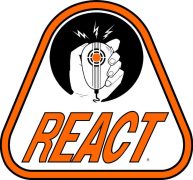
Originally formed in 1962 to have teams monitoring citizens band Channel 9 for emergency and motorist assistance calls, today’s REACT teams have broadened their communications cache to include not only CB and other personal radio services, but amateur radio, too. Most teams employ amateur radio in one way or another.
For more information, go to https://reactintl.org.
Local Amateur Radio Clubs
Don’t forget that local and regional amateur radio clubs also provide public service and emergency communications outside of the groups listed above. Some clubs function to assist ARES and RACES operations in their areas, while others provide communications for public events, such as parades, bike tours, and marathons. The New York and Boston Marathons, for example, use an army of amateur radio operators to ensure that their events operate smoothly. Amateurs often are behind the front lines at large-scale events, and that amateur radio operator helping out could be you!
You can find local clubs by going to http://arrl.org/find-a-club.

